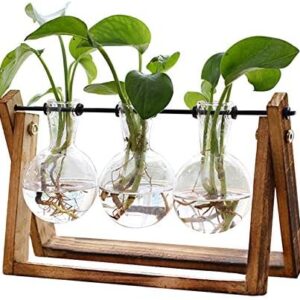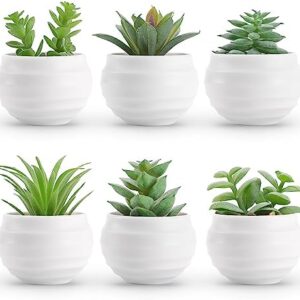Are you tired of using harmful chemicals in your garden? Do you want to feel more connected to the earth and the food you eat? If so, it might be time to consider switching to organic gardening. Organic gardening is a sustainable and environmentally friendly way to grow fruits, vegetables, and herbs without the use of synthetic pesticides and fertilizers. Here are five reasons why you should make the switch to organic gardening today.
1. Protecting the environment
When you use chemical pesticides and fertilizers in your garden, you are not only exposing yourself to harmful toxins, but you are also damaging the environment. These chemicals can run off into nearby water sources, contaminating the water supply and harming aquatic life. They can also linger in the soil for years, disrupting the delicate balance of soil organisms and reducing the fertility of the land. Organic gardening, on the other hand, relies on natural methods of pest control and soil enrichment, such as companion planting, crop rotation, and composting. By choosing organic gardening practices, you are helping to protect the environment and promote biodiversity in your backyard.
2. Improving the quality of your food
One of the greatest benefits of organic gardening is the superior quality of the food you can produce. Organically grown fruits and vegetables are not only free from harmful chemicals, but they are also richer in nutrients and flavor. Studies have shown that organic produce contains higher levels of antioxidants, vitamins, and minerals than conventionally grown produce. By growing your own organic food, you can ensure that you and your family are eating the healthiest and most nutritious ingredients possible. Plus, there is something deeply satisfying about harvesting your own homegrown tomatoes or herbs and enjoying them fresh from the garden.
3. Supporting local ecosystems
Organic gardening is not just about what you do in your own backyard; it is also about supporting local ecosystems and wildlife. When you eliminate the use of chemical pesticides and fertilizers, you create a more hospitable environment for beneficial insects, birds, and other wildlife. Bees, butterflies, and other pollinators thrive in organic gardens, helping to pollinate your plants and ensure a bountiful harvest. By choosing organic gardening practices, you are contributing to the health and diversity of local ecosystems and supporting the delicate balance of nature.
4. Reducing your carbon footprint
Conventional agriculture relies heavily on fossil fuels for the production and transport of synthetic pesticides and fertilizers. These inputs contribute to greenhouse gas emissions and climate change, making conventional farming a major source of carbon pollution. By switching to organic gardening, you can significantly reduce your carbon footprint and help combat climate change. Organic gardening practices, such as composting and mulching, sequester carbon in the soil and promote healthy soil microbial activity, further enhancing the ecosystem’s ability to store carbon. By adopting organic gardening practices, you are taking a small but important step towards a more sustainable and resilient future for our planet.
5. Connecting with nature
Perhaps the most compelling reason to switch to organic gardening is the opportunity to connect with nature and the rhythm of the seasons. In our fast-paced, technology-driven world, it is easy to feel disconnected from the natural world around us. But in a garden, we have the chance to slow down, observe the miracles of growth and transformation, and develop a deeper appreciation for the beauty and complexity of the natural world. Organic gardening allows us to work in harmony with nature, learning from its wisdom and cultivating a sense of stewardship for the land. When we nurture a garden organically, we are not just growing plants; we are fostering a relationship with the earth that nourishes our bodies, minds, and spirits.
In conclusion, organic gardening is a sustainable, environmentally friendly, and deeply satisfying way to grow your own food and connect with the natural world. By making the switch to organic gardening today, you can protect the environment, improve the quality of your food, support local ecosystems, reduce your carbon footprint, and deepen your connection with nature. So why wait any longer? Join the growing movement towards organic gardening and start reaping the benefits for yourself, your community, and the planet.






